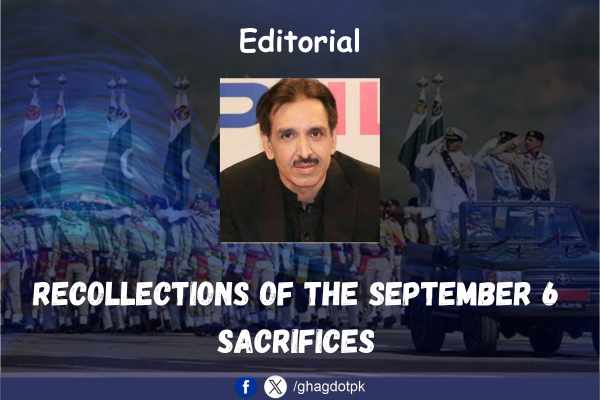September 6 is a significant day in Pakistan’s military and defense history, and it is commemorated as Defense Day each year. The details of how the Pakistan Air Force demonstrated its professional training and skills by “pushing” the Indian Air Force and the Indian Army inside during the war between Pakistan and India on September 6, 1965, have been written and spoken about extensively in India as well as Pakistan. Regardless of the circumstances behind the two countries’ political and border conflicts, and who has shown who down when and how. There is no denying the fact that Pakistan’s forces have not only maintained their professionalism and supremacy in every war, contrary to some popular analysis and perception, but have also created many important records in the world’s war history despite being a relatively small country. Despite the political factors of 1971, the armed forces of Pakistan did not prove themselves to be weak.
During the 1965 war, the overall performance of Pakistani forces, particularly its Air Force had put India on high alert in terms of its strength and combat prowess, and it was this alert that led India to capitalize on the engagement and “uprising” of anti-Pakistan Bengalis, rather than testing its military prowess during the 1971 war.
Despite having fewer resources than India, most Indian war specialists acknowledge that Pakistan is India’s main military adversary in the region and that Pakistan is willing to go to any lengths to defend itself. Still, there are many places in Pakistan where people think the country is a weak state. In their works and thoughts, Indian specialists and war historians did not hold Pakistan lightly. For instance, Indian politicians and media referred to the recent retaliation in Bangladesh against Sheikh Hasina Wajid, her administration, and her party as a “feat” of Pakistan’s military establishment and even claimed that Pakistan had exacted revenge on India and the Awami League for 1971.
However, DG ISPR Lieutenant General Ahmed Sharif Chaudhry stated that the Pakistan Army is both a highly organized institution and a national army, and that criticism of its accountability and discipline system is inappropriate during a thorough discussion of the military and political issues facing Pakistan on September 5, 2024. He defended the Army Act implementation against some former army officers by claiming that the army is neither pro nor anti-party and is not involved in politics. He referred to anyone who attempted to utilize this national institution for partisan gain will be evaluated.
For the past few years, there has been a concerted campaign of disinformation against Pakistan’s armed forces, and a wide range of accusations have been leveled at the organization tasked with defending the nation. It is undeniable that the majority of Pakistanis not only have faith in their army. Instead, the populace views this institution as a tool for robust personal and national security protection. Because of the region in which Pakistan is located, it is important to avoid spreading misinformation about Pakistan’s armed forces in the context of challenges rather than recalling the resentment of the past, leveling accusations, and taking the stance of making this significant national institution non-controversial in the name of scoring political points. In view of the circumstances and challenges there, Pakistan is in dire need of a strong and well-organized army.






